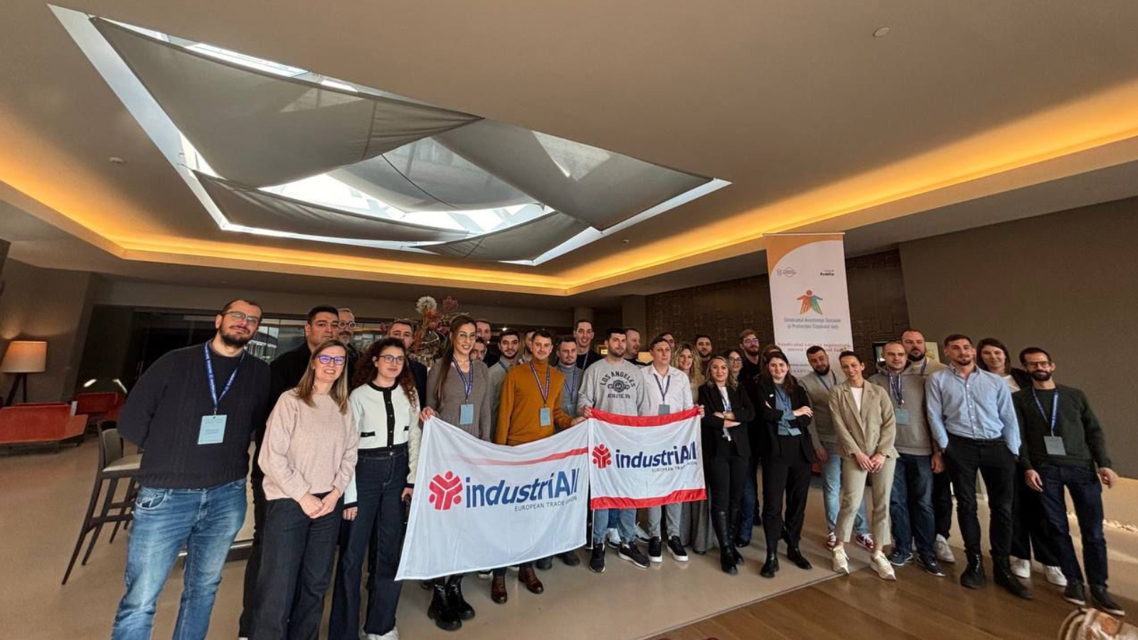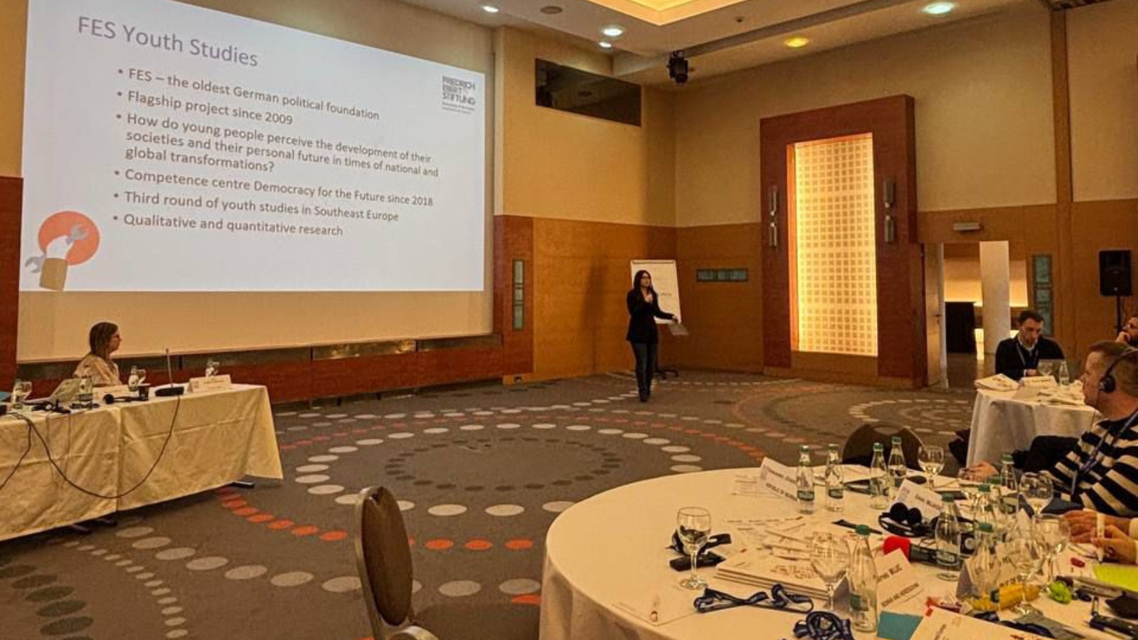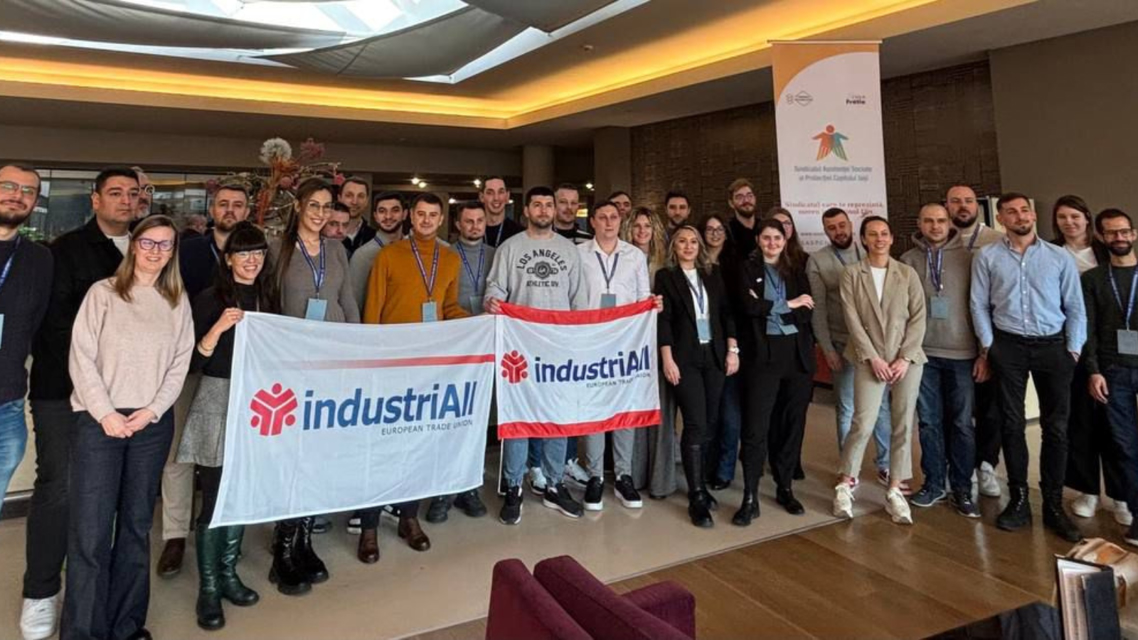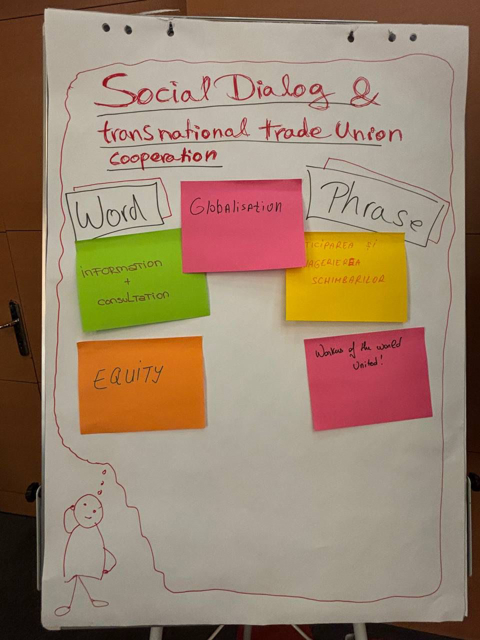From 11-13 February, industriAll Europe, together with ITCILO ACTRAV, held the last workshop of the Young Social Dialogue Champions’ academy project.
Over 30 young unionists from Romania, Bulgaria, Belgium, Germany, France, Italy, Serbia, Bosnia and Herzegovina and Türkiye, came together in Bucharest to discuss different models of collective bargaining across Europe and exchange best-practices and tools and techniques for building power to set them up.
The workshop provided participants with a comprehensive overview of the different collective bargaining models across Europe and gave young trade unionists the communications tools and strategies to campaign and negotiate effectively for better wages and working conditions.
During the first session, participants learned how to develop communication strategies, how to build their own campaign pitches, and how to ensure successful negotiation outcomes. Participants shared insights into the situation of young unionists in different European countries and the extent of their involvement in collective bargaining rounds.
The Friedrich Ebert Stiftung’s Romania Office and South-East Europe Regional Office presented the results of their latest study on the opinions, fears, and aspirations of the new generations from over 12 countries. The results show that young people’s main concerns are socio-economic, as many are in precarious work with limited contracts, and almost half of them fear becoming unemployed. There is a lot of work for unions to do to address these concerns and to develop demands that speak to young people.
Isabelle Barthès, Deputy General Secretary of industriAll Europe said: “Sharing knowledge builds up the future of trade unions. It is important to engage with young trade unionists, to include them in union work and to listen to their concerns. Young people are the future of the trade union movement and should have a seat at the decision-making table.
"This project has taught unionists about steps to take to ensure quality jobs, a fair digital transformation, Just Transition to a decarbonised economy, and, finally, strong collective bargaining.
"Youth remains a priority for industriAll Europe, and we will continue to dedicate resources to strengthen youth involvement in order to support our members to increase their youth membership. It is clear that involving young members is not only beneficial – it is also essential to secure not only the future of the trade union movement but also to ensure that the needs of the future generations of Europe are met.”
Over 30 young unionists from Romania, Bulgaria, Belgium, Germany, France, Italy, Serbia, Bosnia and Herzegovina and Türkiye, came together in Bucharest to discuss different models of collective bargaining across Europe and exchange best-practices and tools and techniques for building power to set them up.
The workshop provided participants with a comprehensive overview of the different collective bargaining models across Europe and gave young trade unionists the communications tools and strategies to campaign and negotiate effectively for better wages and working conditions.
During the first session, participants learned how to develop communication strategies, how to build their own campaign pitches, and how to ensure successful negotiation outcomes. Participants shared insights into the situation of young unionists in different European countries and the extent of their involvement in collective bargaining rounds.
The Friedrich Ebert Stiftung’s Romania Office and South-East Europe Regional Office presented the results of their latest study on the opinions, fears, and aspirations of the new generations from over 12 countries. The results show that young people’s main concerns are socio-economic, as many are in precarious work with limited contracts, and almost half of them fear becoming unemployed. There is a lot of work for unions to do to address these concerns and to develop demands that speak to young people.
Isabelle Barthès, Deputy General Secretary of industriAll Europe said: “Sharing knowledge builds up the future of trade unions. It is important to engage with young trade unionists, to include them in union work and to listen to their concerns. Young people are the future of the trade union movement and should have a seat at the decision-making table.
"This project has taught unionists about steps to take to ensure quality jobs, a fair digital transformation, Just Transition to a decarbonised economy, and, finally, strong collective bargaining.
"Youth remains a priority for industriAll Europe, and we will continue to dedicate resources to strengthen youth involvement in order to support our members to increase their youth membership. It is clear that involving young members is not only beneficial – it is also essential to secure not only the future of the trade union movement but also to ensure that the needs of the future generations of Europe are met.”



